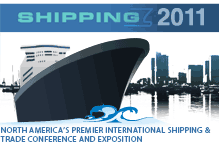Legislative Change to OPA: Only Answer for Lessors
The Oil Pollution Act (OPA) has sent everyone running for cover, but the big question is what cover and is it available? Virtually all interests connected with the financing, ownership and operation of shipping assets face potential liability under the contentious legislation enacted in the US last August. Various forms of insurance cover have been devised to accommodate OPA risks, but the threat of “unlimited liability” implicit in the act, makes it impossible to buy total immunity.
The exposure is tough for those with “direct control” over a vessel, such as the owner/operator and charterer. But it is that much worse for investors or title holders more remote from the daily running of the ship. In this context, the legal position of the financial lessor seems particularly exposed.
In a recent paper on the position of lenders and finance lessors under the OPA, W. Thaddeus Miller, partner in New York law firm Watson Farley and Williams, wrote “The position of the finance lessor is grim. It is liable for pollution claims jointly and severally with the bareboat charterer. Where a pollution incident has been caused by gross negligence, willful misconduct or violation of Federal safety, construction or operating regulation, the finance lessor will be subject to unlimited liability, even though the real responsibility lies with the bareboat charterer or manager.” The finance lessor may be regarded as a secured lender in economic terms, but it is treated in the same way as an outright owner under the terms of the OPA.
This is only an excerpt of Legislative Change to OPA: Only Answer for Lessors
Content is restricted to subscribers. To continue reading please Log-In or view our subscription options.
Related Archive Files
Leave a Reply
You must be logged in to post a comment.







